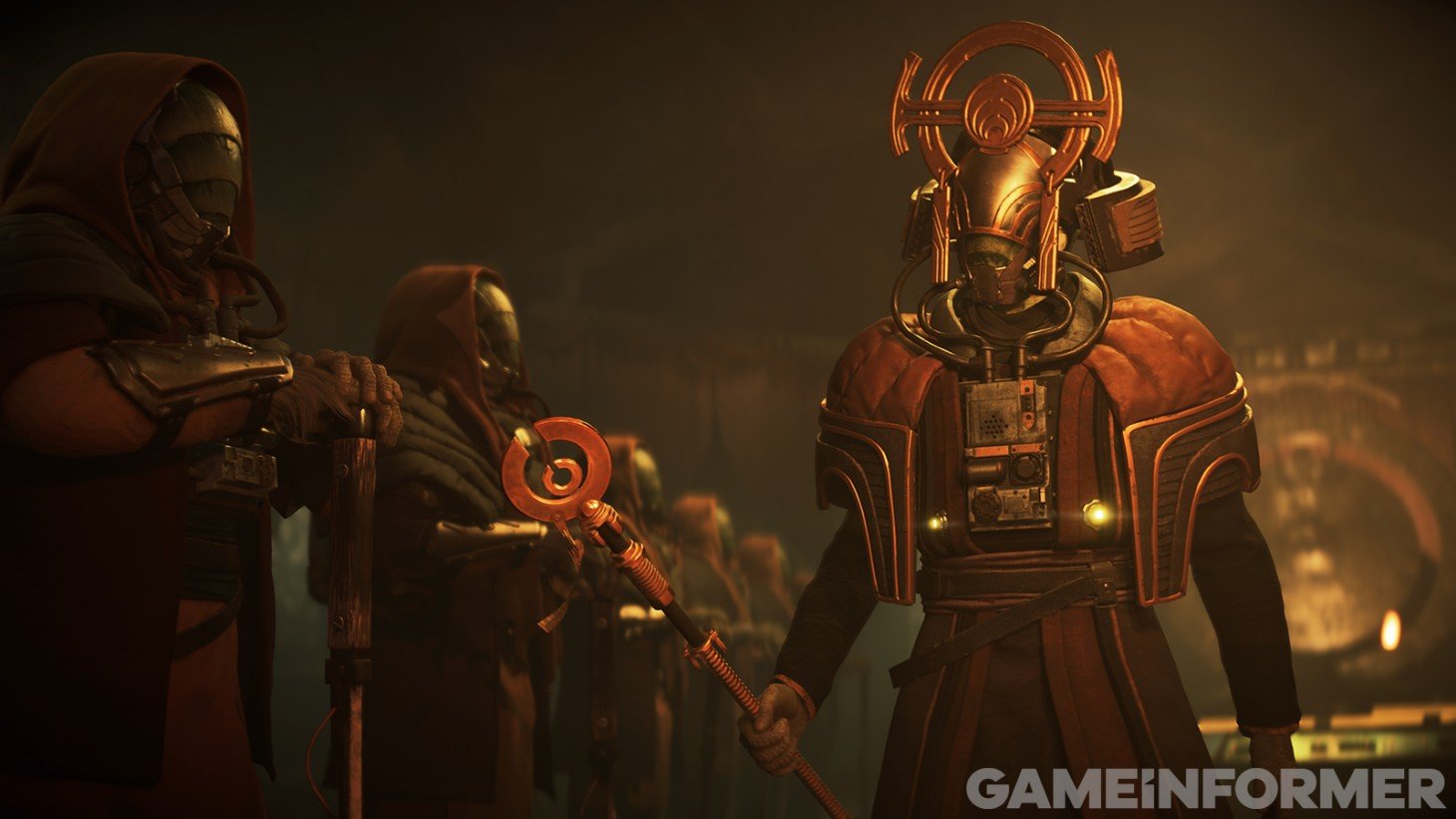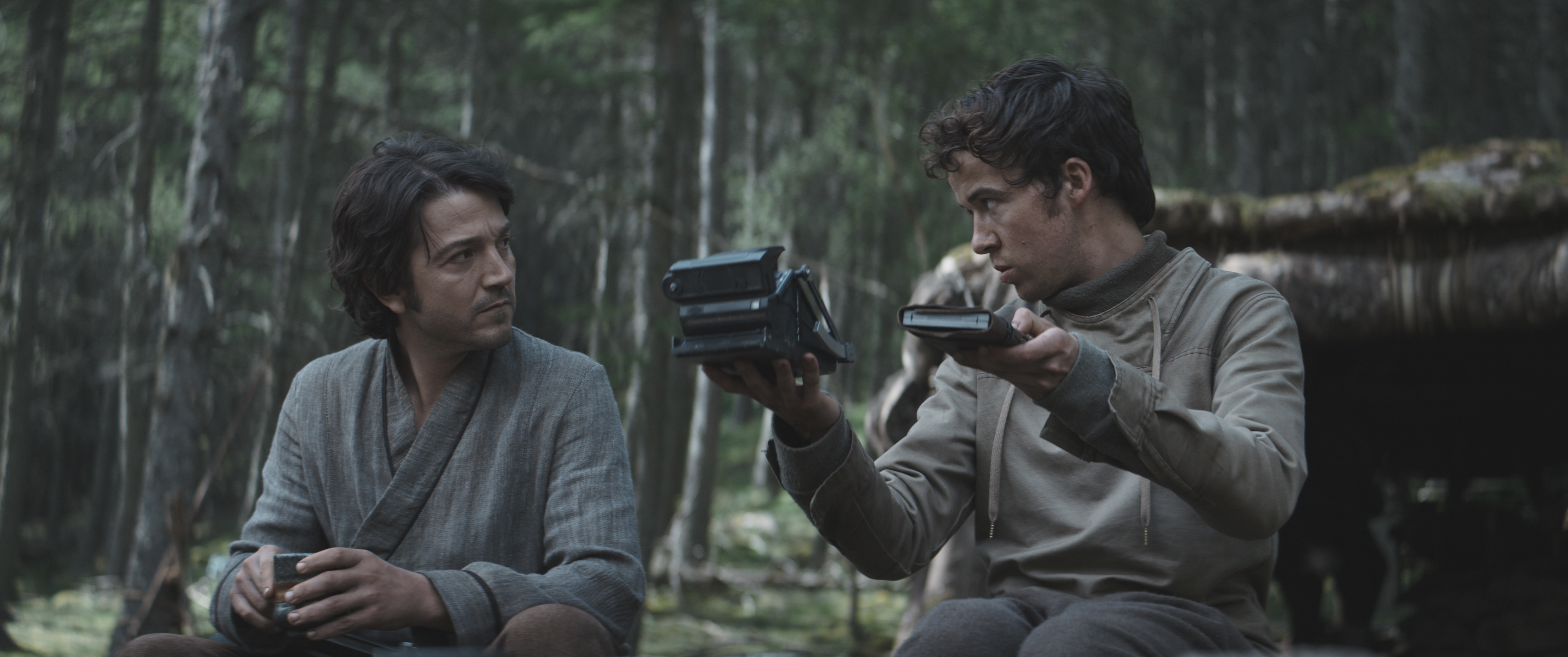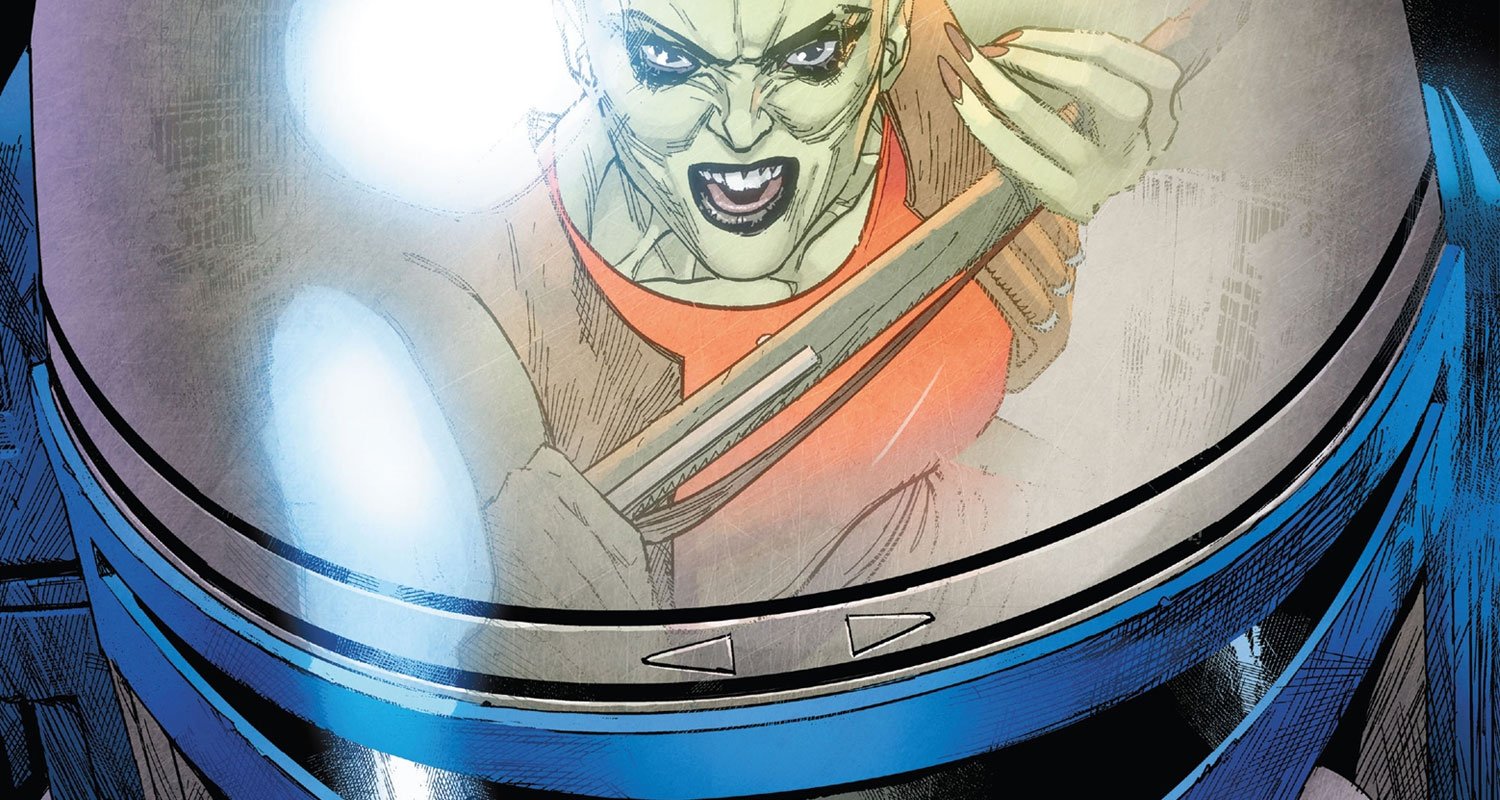Lovecraft Country Episode 2 Review
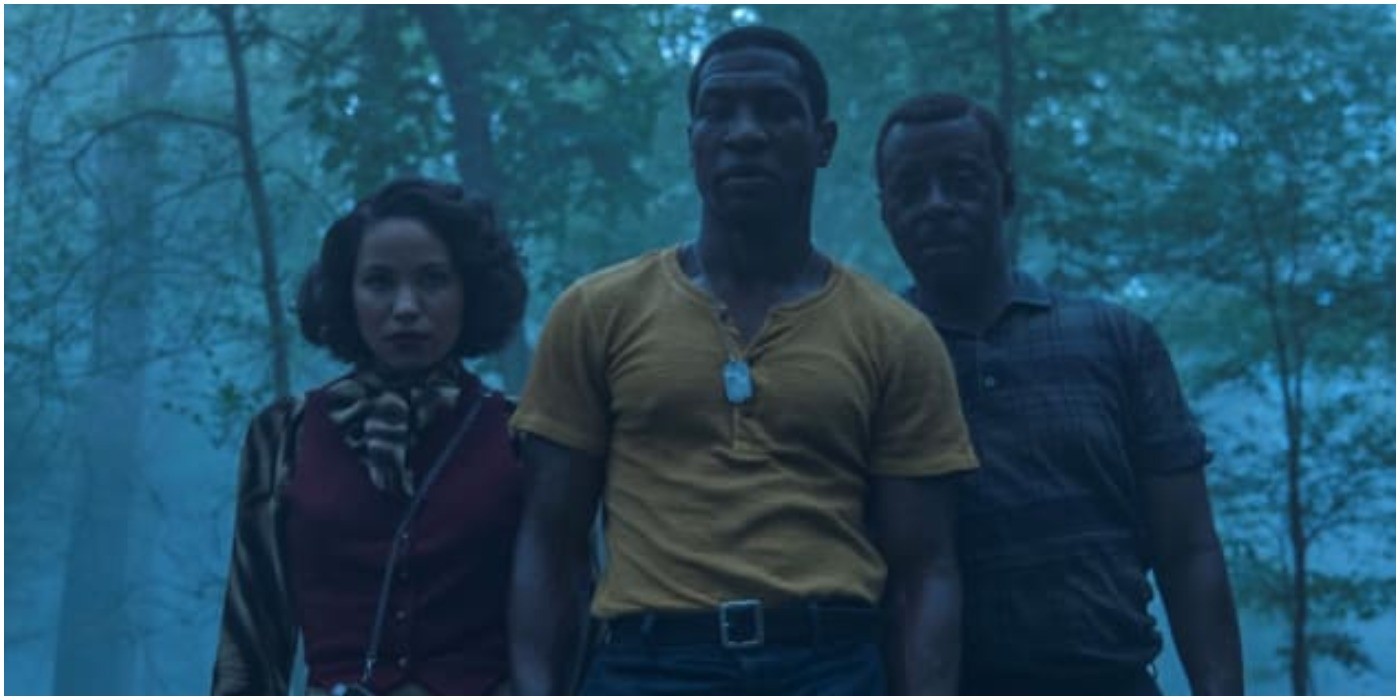
The first episode of Lovecraft Country contrasted the unreality of pulp sci-fi with the unreality of 1950s segregated America. The second episode contrasts the starkly different realities of memory and self. And also there are baby shoggoths growing inside cows.
The show burns through an entire season of plot in this episode, inducing a fair amount of whiplash but never any misgivings. Typically shows that hurry through plot points fail in their execution, but at this early moment, Lovecraft Country is less concerned with plot than it is with theme and character.
“Whitey on the Moon” begins with the fortunes of our three heroes, Tic, Leti, and George, dramatically reversed from the end of last week. They’re safe and warm inside the baroque estate of Ardham Lodge and gifted with accouterments they can scarcely believe.
The classic theme from The Jeffersons plays as George luxuriates in rare first editions of his beloved books, while Leti puts on a fashion show with her new wardrobe (eventually settling on a lovely riding outfit). Tic can’t quite forget what happened, though. Unlike the other two, who have no memory at all of the shoggoth attack.
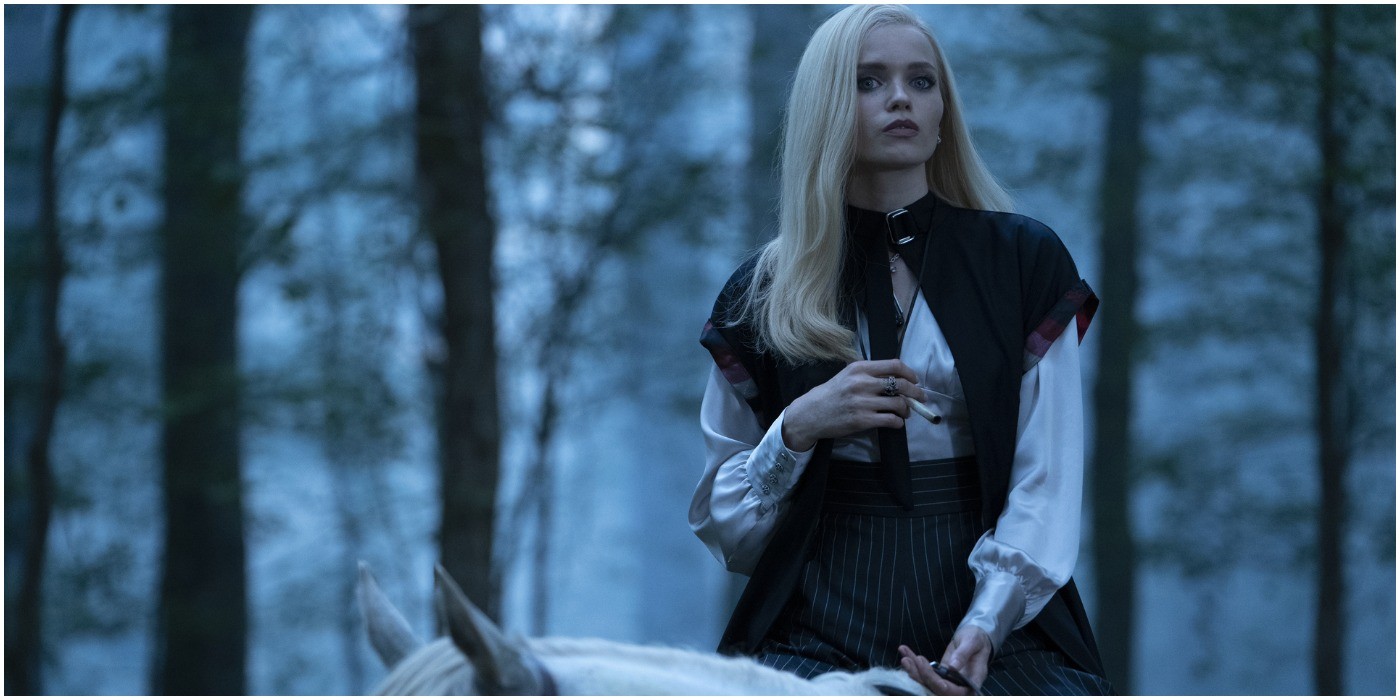
Missing memory is the first hint something is not right in the house. By the end of the episode, the show will have figuratively and literally crossed a threshold into a world of magic, monsters, and perhaps dimensions. In the first episode, James Baldwin questioned reality. This episode questions the reality of the self.
Memory plays a key role in this episode. Leti confesses a personal, painful childhood memory of her mother to Tic (even though he turns out not to be Tic). Tic (the real one) is actually not himself at all, but a descendant of the Titus Braithwaite who built the lodge and founded the Order of the New Dawn.
From the jump, this episode dives headfirst into the strange, cruel, and Lovecraftian Braithwaite family. The father, Samuel, played by Tony Goldwyn, seeks to recreate the experiment of the first Braithwaite and open a door to the Garden of Eden to achieve immortality. The daughter, Christina, is a powerful sorceress seething with resentment of a hierarchy that will never include her because she’s a woman.
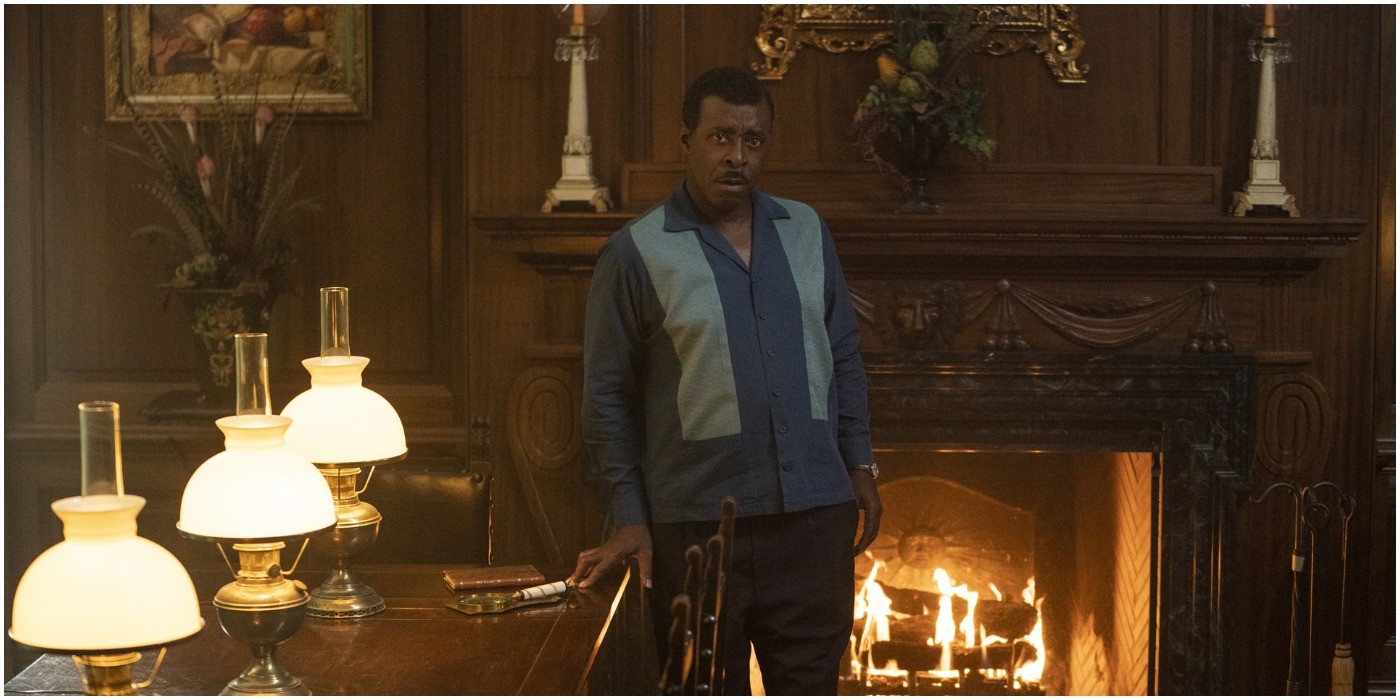
Director Daniel Sackheim shoots the labyrinthine house with upside-down angles, creating a sense of confusion and dislocation amplified by a standout setpiece in the middle of the episode in which the heroes all succumb to phantoms of their hopes, dreams, and darkest fears.
Leti imagines Tic breaking into her room to rescue her and, after she tells him about her mother, who abandoned her at a young age, kisses him. This turns quickly to something more serious, but when she wants to stop, he doesn’t. He undoes his belt to reveal the terrifying image of a live snake.
Leti is traumatized and brutalized in this episode, first by her unreal experience in the room, and then when they try to escape the lodge. Samuel Braithwaite shoots her, and she dies, a pawn in a gambit to force Tic into participating in the ritual to open the gate to Eden.
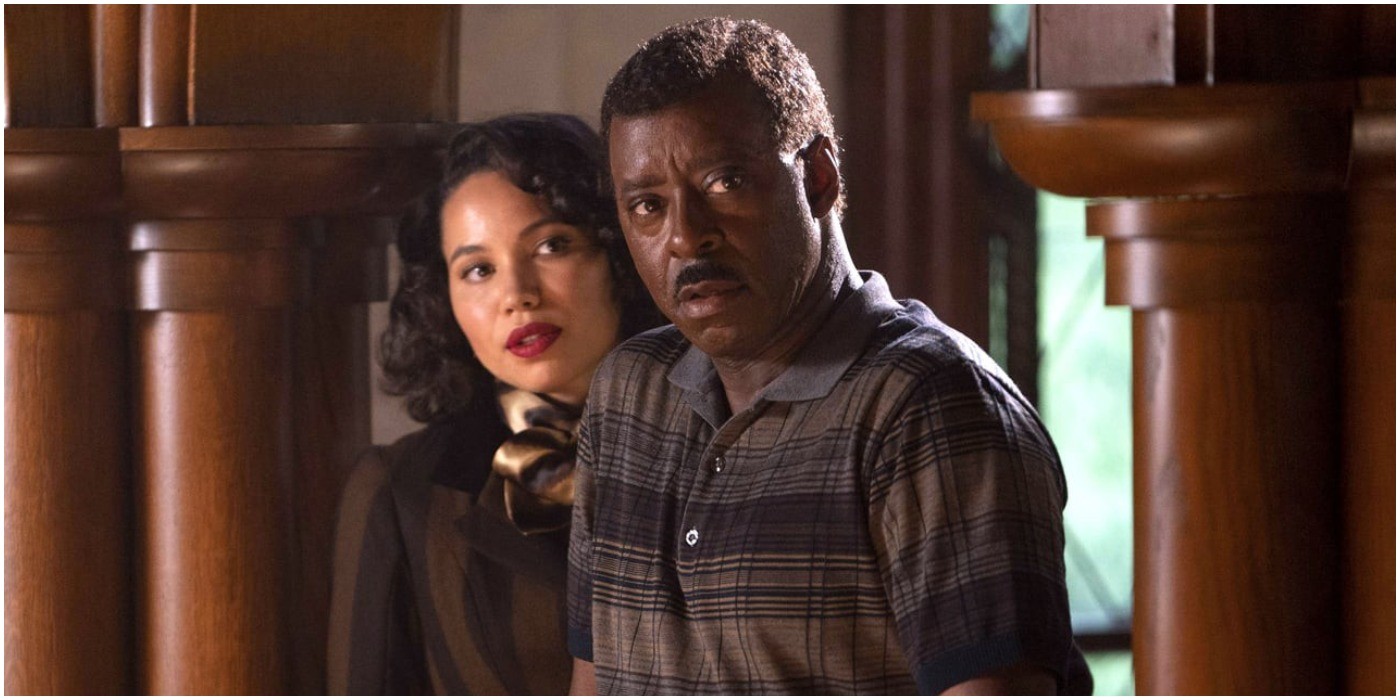
Leti returns to life, another flick of the wrist from the powerful Braithwaites, but she’s likely left much of her old self behind. As much as Tic wants to find his father and get home, Leti wants to get out, out of her past, out of her head, and into clothes, comfort, and a present she can lose herself in.
George is equally haunted by the past, but he’s always in communication with it. This allows him to see through his specter, the image of a woman he once loved, and leads him to the secret truth of the lodge. He discovers the history of the Order of the New Dawn (or Sons of Adam; there are a lot of names).
George also holds secrets about Tic’s parentage, which he may even have over Tic’s father, Montrose. George suffers the same gunshot wound Leti does, to force Tic’s hand in the ritual. While he slowly dies, he vaguely references the fact Montrose is likely not Tic’s real father.
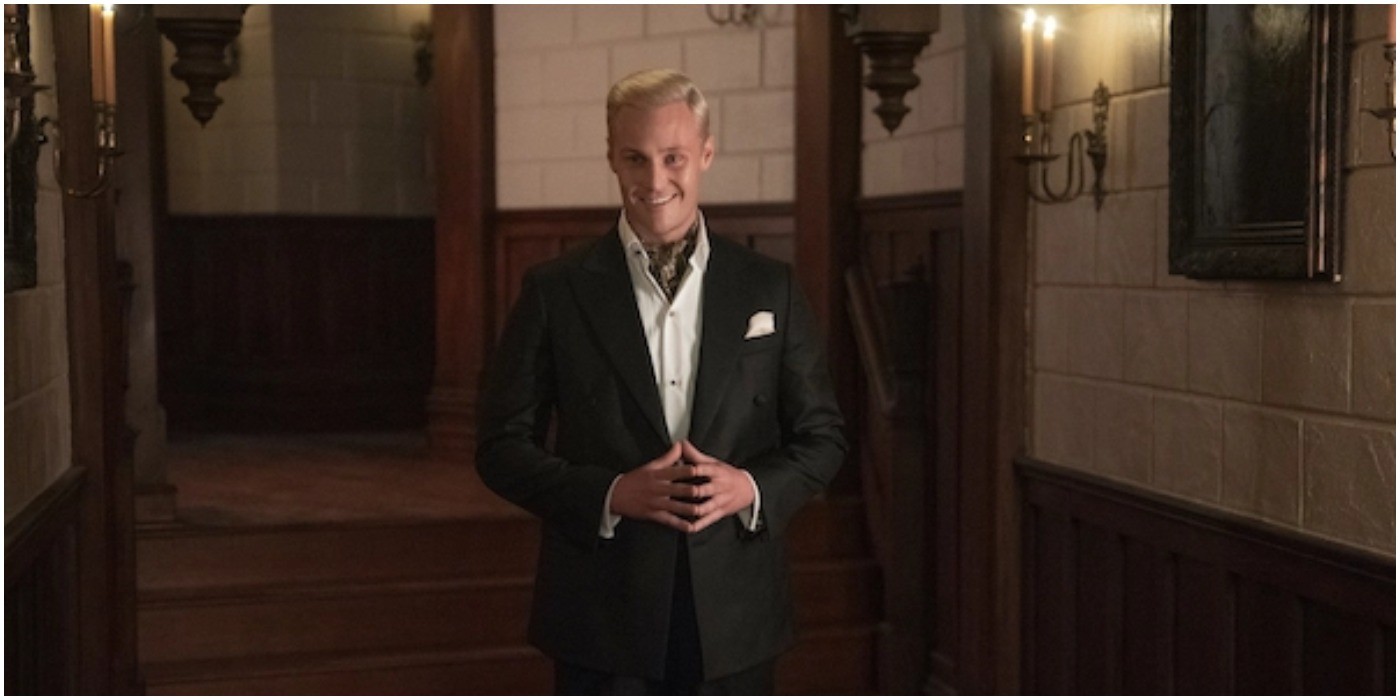
That begs the question of why Montrose is there at all, which we don’t quite get an answer to. He says the letter he sent back home teasing his journey to Ardham was written with a gun to his head, but he doesn’t explain why he actually went to Ardham Lodge in the first place.
The episode blazes into its finale, with Tic taking center stage in a visually stunning ritual that opens a gate, not to Eden but maybe the recent past. He sees a vision of a young pregnant African-American woman, who is likely the ancestor George references earlier in the show.
The ritual fails at this moment, and Tic runs through the portal out of the house as it collapses. But did he cross a threshold? Is he still in the same reality? Is he even the same person he remembers? Tic is the only one who doesn’t forget in the episode, but by the end, he surely wishes he could.
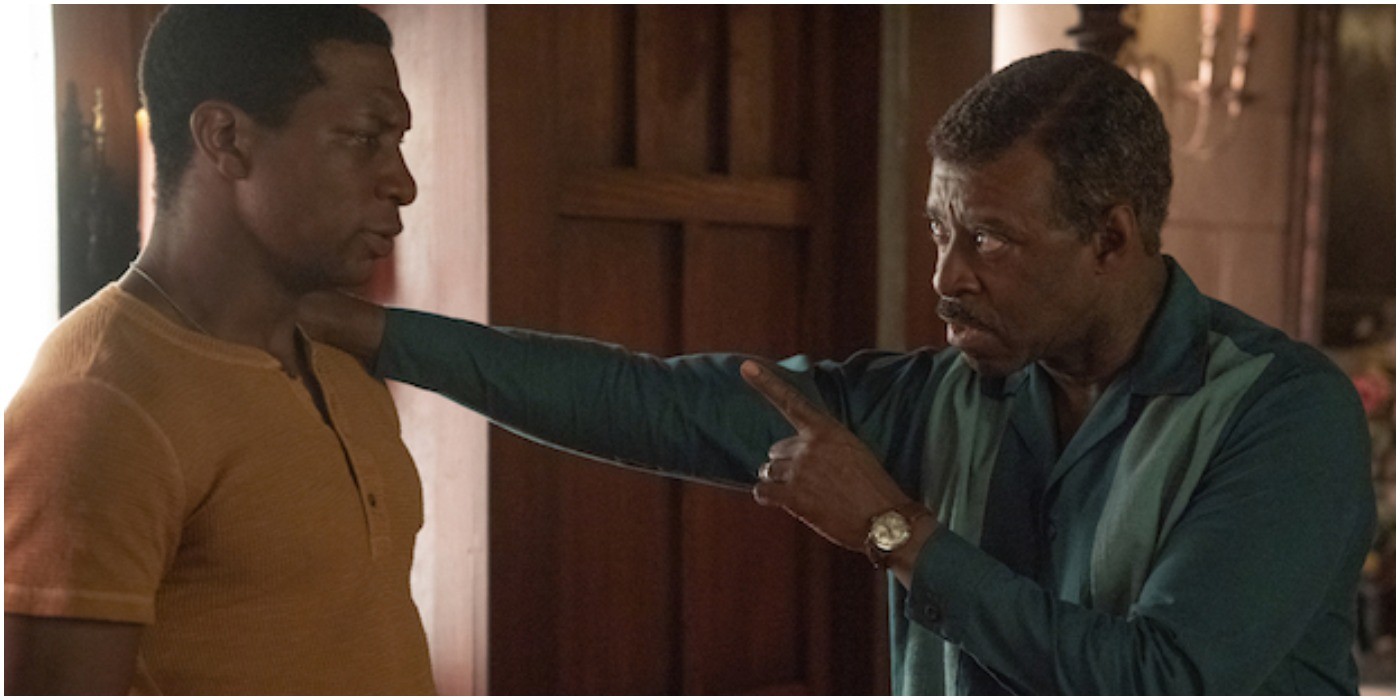
George dies at the end, in the arms of his brother. His death is likely as temporary as Leti’s, but it casts a question over the rest of the series: With a main character dead, the villains apparently destroyed, and a season of story exhausted in sixty minutes, what’s next?
Forbidden Knowledge:
- The episode’s title, “Whitey on the Moon“, comes from the spoken word poem by Gil Scott-Heron which plays as the ritual commences.
- When Tic, George, and Leti stroll through Ardham village, they pass a clear Wicker Man reference.
- The whole town and episode has strong The Village vibes, actually.
- The show brims with ideas and references. In addition to memory, a major theme in this episode is class. The show makes a strong contrast in how class works among white elites – the Sons of Adam don’t associate with the KKK, because as Christina says, they’re ‘poor.’ Ouch.
Darby Harn is a contributor for Screenrant, CBR.com, Star Wars News Net, and Movie News Net. He is the author of the sci-fi superhero novel EVER THE HERO. His short fiction appears in Strange Horizons, Interzone, Shimmer, and other venues.



